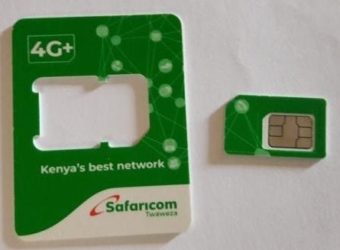Losing a Safaricom line can be a stressful experience. It’s not just about losing the ability to make and receive calls, but also the risk of someone else using your line to make unauthorized calls or access your personal information. If you suspect that your Safaricom line has been stolen, it is important to take immediate action to block the line. In this article, we will guide you through the steps you need to take to block a stolen Safaricom line.
Contact Safaricom Customer Care
The first thing you need to do when you suspect that your Safaricom line has been stolen is to contact Safaricom customer care. You can do this by dialing 100 from another Safaricom line or 0722 000 100 from any other network. When you call customer care, you will be asked to provide some basic information to verify your identity, such as your full name and ID number.
Once your identity is verified, the customer care representative will assist you in blocking your Safaricom line. They will also provide you with a new SIM card, which you can use to activate your Safaricom line on your phone once the block has been lifted.
Report the Theft to the Police
After you have contacted Safaricom customer care and blocked your line, the next step is to report the theft to the police. This is an important step, as it will help the police to investigate and possibly recover your stolen Safaricom line. You will need to provide the police with your Safaricom line number, the date and time that you noticed it was stolen, and any other relevant details.
The police may also request a copy of your ID or passport, as well as the original SIM card packaging that came with your Safaricom line. It is important to cooperate with the police and provide them with any information that may help in their investigation.
Monitor Your Account
After you have blocked your Safaricom line and reported the theft to the police, it is important to monitor your Safaricom account. This will help you to identify any unauthorized activity that may have occurred before or after you blocked your line.
You can monitor your Safaricom account by logging into your my Safaricom app or by dialing *100#. Check your account balance, recent transactions, and any other activity that may be of concern. If you notice any unauthorized activity, contact Safaricom customer care immediately to report the issue.
Take Precautions to Prevent Future Incidents
Losing a Safaricom line can be a stressful experience, but there are some steps you can take to prevent future incidents. Here are some precautions you can take:
- Avoid sharing your Safaricom line with anyone. If you need to make a call, use a public phone or borrow a friend’s phone.
- Keep your phone and Safaricom line in a secure place at all times. If you are in a public place, keep your phone in your pocket or bag and avoid leaving it unattended.
- Set up a PIN code for your Safaricom line. This will prevent anyone else from accessing your line without your permission.
- Be cautious when receiving calls or messages from unknown numbers. If you receive a suspicious call or message, do not respond and report it to Safaricom customer care immediately.
Conclusion
Losing a Safaricom line can be a stressful experience, but it is important to take immediate action to block the line if you suspect it has been stolen. By contacting Safaricom customer care and reporting the theft to the police, you can prevent unauthorized activity and protect your personal information.
It is also important to monitor your Safaricom account for any suspicious activity and take precautions to prevent future incidents, such as setting up a PIN code for your line and avoiding sharing your line with others. By taking these steps, you can minimize the risk of losing your Safaricom line and protect yourself from potential harm.
Remember, if you ever suspect that your Safaricom line has been stolen, do not hesitate to take action. Contact Safaricom customer care, report the theft to the police, and take the necessary precautions to protect yourself. Stay safe and secure in the digital age.



